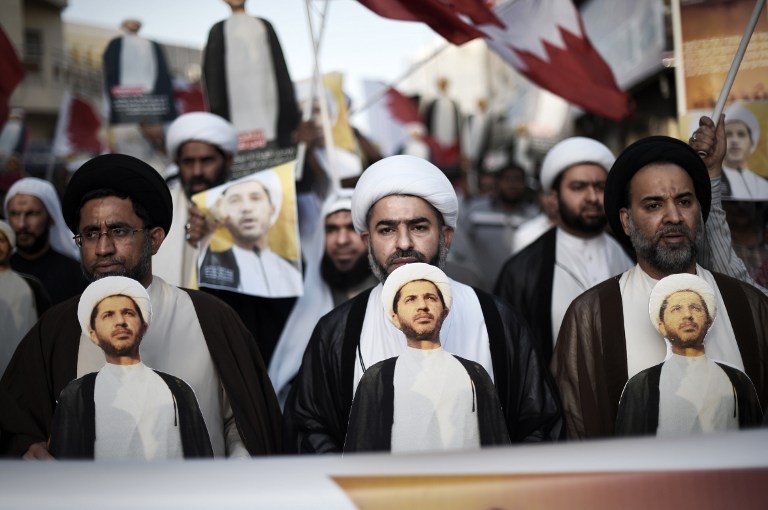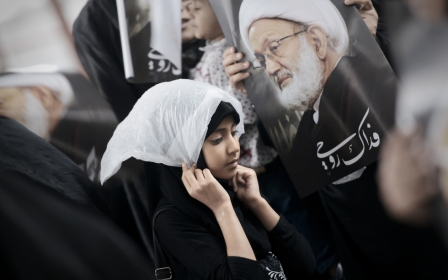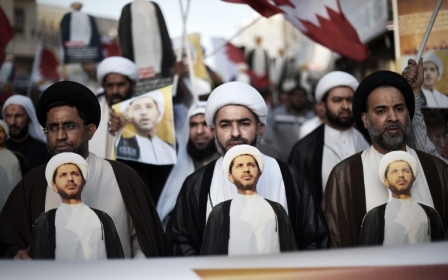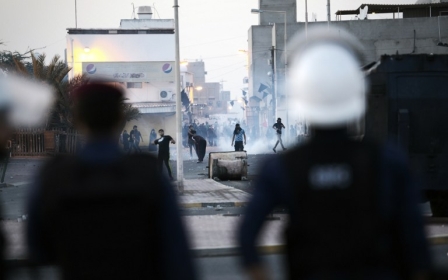Bahrain snubs Western allies' condemnation of opposition ban

Bahrain has rebuffed its British and US allies over a controversial ban on the kingdom's largest opposition group, insisting it will brook no interference in its internal affairs.
The tiny but strategic Gulf state, a former British protectorate and home base of the US Fifth Fleet, has been racked by persistent unrest since its Sunni rulers bloodily suppressed an uprising by its Shia majority in 2011.
Western governments have repeatedly appealed publicly for reform and reconciliation but those calls have gone unheeded and in recent months the crackdown on dissent has intensified.
On Sunday, a court dissolved Al-Wefaq, the largest faction in parliament before 2011, accusing it of fanning violence in Shia areas.
The ruling was condemned around the world, by Iran as well as Western governments and the United Nations.
But Bahrain remains unrepentant, issuing a statement late on Monday hitting back at its Western allies.
"Such statements and positions are unacceptable interference in the internal affairs of the kingdom of Bahrain, and in the decisions of the Bahraini judicial process, which provides all necessary standards of justice, fairness, transparency and independence," the foreign ministry said.
The "statements are unjustified and only give encouragement to groups which support extremism and terrorism," it added.
The ministry said it hoped "friendly and allied countries take into account the interests" of Bahrain, just as it "is keen to take into account the interests of all allies and partners in order to preserve their distinctive historical relations, and to ensure security and stability in the region."
Bahrain received military support from its Gulf Arab allies when it crushed the 2011 protests calling for a constitutional monarchy and an elected prime minister, but its continuing crackdown has drawn mounting Western criticism.
US Secretary of State John Kerry said the Al-Wefaq ban was the "latest in a series of disconcerting steps in Bahrain".
He called on Bahrain to "reverse these and other recent measures (and) return urgently to the path of reconciliation".
British Foreign Secretary Boris Johnson urged Bahrain "to guarantee and protect political freedoms for all its citizens".
Al-Wefaq's leading cleric Ali Salman is serving a nine-year jail term on charges of inciting violence after a court in May more than doubled his sentence.
Authorities have also stripped at least 261 people of their citizenship since 2012, according to the Bahrain Centre for Human Rights, including the country's Shia spiritual leader Sheikh Isa Qassem.
Last October, Britain began building a naval base at Mina Salman, outside Manama, its first new permanent base in the Middle East in four decades.
Bahrain is a member of the US-led coalition fighting the Islamic State (IS) group in Syria.
New MEE newsletter: Jerusalem Dispatch
Sign up to get the latest insights and analysis on Israel-Palestine, alongside Turkey Unpacked and other MEE newsletters
Middle East Eye delivers independent and unrivalled coverage and analysis of the Middle East, North Africa and beyond. To learn more about republishing this content and the associated fees, please fill out this form. More about MEE can be found here.




